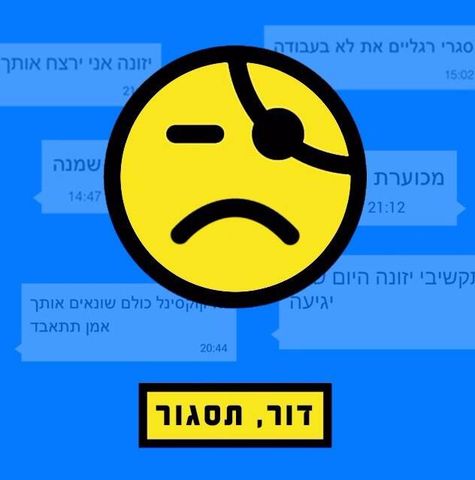Ever since our world entered the tech era, Israelis have been known for their groundbreaking technological developments. However, the app that has drawn the most attention recently is by no means a typical Israeli app that can detect missiles and send alerts to affected areas, or monitor your blood sugar, or even help parents keep track of their children. This app has raised controversy as it magnifies the potential of cyberbullying. Blindspot is a social app, developed by Dor Refaeli (younger brother of famous Israeli supermodel Bar Refaeli) and The Shellanoo Group which allows friends to message each other anonymously. With the help of a couple of friends, I tried the app out myself, and the potential dangers are clear as day.
Cyberbullying is a new form of bullying through text messages, social media direct messages and posts, and many other creative outlets that allow one or more users to put down another user. As a youth leader and educator, I see firsthand how the new generation is experiencing and even developing new ways to cyberbully each other every day. Nearly 43 percent of kids have been bullied online, and one in four kids has had it happen more than once. Only one in 10 victims will inform a parent or trusted adult of their abuse. Bullying victims are two to nine times more likely to consider committing suicide. It is no doubt that cyberbullying is a problem, but the solution is not simply to ban all children from using social media or the internet.
Furthermore, the children of the 21st century have seen that once a bully and his/her victim are separated by a screen (phone, computer, etc.), the messages are more hurtful, more ruthless, and more dangerous. Anonymity is without a doubt a huge factor in cyberbullying, so much so that we have begun to question the benefits of anonymity in social media in the first place.
Blindspot is very user-friendly. To open an account, you simply download the app and verify your phone number. To send a message, you sync your contacts to the app, search for a contact and then begin sending them messages. Contacts who also have the app have the Blindspot smiley next to their name. The person who receives the first message is notified that the message was sent by Anonymous: 01. From the messaging display, you can tap the name of the sender, in this case “Anonymous: 01”, to block that user.
Israeli educators and other leaders are upset by the app managers’ lack of social awareness and ignorance of the fact that cyberbullying is a real and increasingly dangerous issue. According to Haaretz, “Orna Heilinger, who manages the hotline of the Israel Internet Association… urged people not to download the app.” Facebook posts that criticize the app and point out its flaws receive plenty of support in the form of likes, shares, and reinforcing comments. The app has been called an “open channel for humiliation, a gaping doorway for evil.” Guy Lerer, an anchor on “HaTzinor,” a news broadcast focusing on internet and media news, has launched a campaign called, “Dor, Tisgor” (“Shut it down, Dor”) in response to Blindspot. Lerer writes, “Shut it down, because at some point in time, maybe even in the near future, you may be forced to deal with the idea that a child took his own life because his classmates incessantly sent him anonymous messages. Don’t believe me? Talk to me and I’ll tell you about a number of children who are already constantly receiving hurtful messages. This is all happening with the help of your app.”
Secret, an American app that allowed users to post content and message anonymously, experienced similar backlash — including an attempt to ban it — in mid-2014. The app was officially shut down last year. However, Refaeli has argued that the only reason his app is receiving so much attention is because of his last name. In an interview with Ynet News, Refaeli talked about the positive and playful nature with which he and his friends use the app. He also defended the app in that it can be used as a support system for LGBTQ youth, victims of domestic violence, and other vulnerable individuals. In the interview, he said, “There are no bad apps, only bad people. Just like guns don’t kill people, people kill people.” He emphasized that there are settings in the app that prevent and take necessary precautions (e.g. the “block” setting) against cyberbullying. Refaeli encouraged critics of the app to download it and investigate its possible dangers, which, he argued, are contained to the level of any other social media messaging platform.

